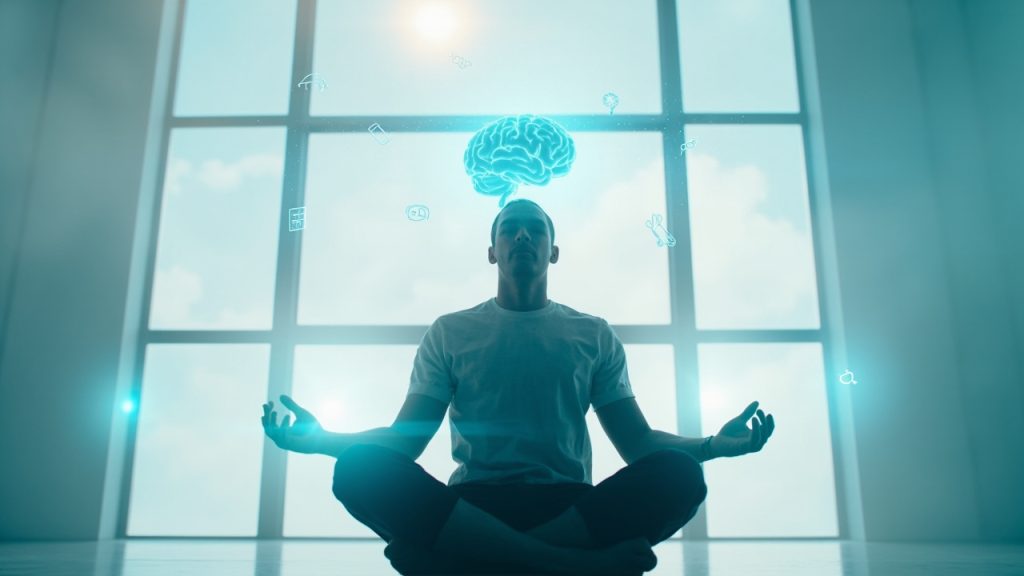Have you ever experienced that frustrating sensation of your thoughts swimming through dense mental haze, making even routine tasks feel monumentally challenging? This struggle is far from unique to you. In today’s hyperconnected digital landscape, achieving genuine mental acuity has evolved into a rare treasure that grows increasingly elusive. Surrounded by relentless digital alerts, sprawling task lists, and the breakneck velocity of contemporary existence, our cognitive systems are operating in perpetual overdrive merely to maintain equilibrium.
Mental sharpness transcends simply performing well in crucial presentations or recalling where you placed your belongings. It serves as the cornerstone of effective reasoning, innovative problem-resolution, and authentic well-being. When your cognitive processes operate with pristine precision, all other aspects of life align more seamlessly. The encouraging reality? You don’t require costly nootropics or elaborate mindfulness retreats to enhance mental acuity. Targeted, incremental modifications to your daily patterns can yield profound improvements in your brain’s operational capacity.
These eight scientifically-validated approaches will empower you to pierce through cognitive haze and access the razor-sharp thinking you’ve been seeking. Each recommendation is crafted to be pragmatic, implementable, and demonstrate results within days of adoption. Let’s explore these research-backed methodologies that will revolutionize your cognitive capabilities.
Sleep Optimization Techniques That Dramatically Enhance Mental Acuity
Your brain remains actively engaged during sleep, transitioning into a comprehensive maintenance phase. Throughout deep sleep cycles, your neural tissue performs literal cleansing operations, eliminating harmful metabolic byproducts that accumulate during conscious hours. This essential cellular maintenance proves critical for preserving optimal mental function, yet many individuals inadvertently compromise this vital process.
Restorative sleep quality fundamentally influences your capacity for sustained attention, strategic decision-making, and information processing. During sleep deprivation, your prefrontal cortex—the neural region governing executive functions—operates at significantly diminished efficiency. This neurological impairment explains why cognitive tasks become exponentially more challenging following inadequate rest.
The solution extends beyond merely accumulating eight hours; it involves optimizing your complete sleep architecture. Begin by establishing a reliable pre-sleep ritual that effectively signals your brain to initiate the wind-down process. This comprehensive approach might encompass:
- Reducing ambient lighting 90 minutes before intended sleep time to naturally stimulate melatonin synthesis
- Maintaining bedroom temperature within the 65-68°F range for optimal sleep conditions
- Establishing a device-free sanctuary in your sleeping area to eliminate blue light interference
- Implementing blackout window treatments or sleep masks to guarantee complete darkness
Sleep schedule consistency carries more significance than most individuals appreciate. Your circadian biological clock flourishes with predictable patterns, making consistent sleep and wake times—including weekends—a powerful tool for significantly improving mental clarity. When your internal chronometer achieves synchronization, you’ll experience deeper, more regenerative sleep that leaves you cognitively refreshed and prepared to navigate complex intellectual challenges.
Enhancing Mental Clarity Through Intelligent Nutritional Strategies
Your brain demands roughly 20% of your total daily caloric intake, positioning nutrition as a formidable mechanism for cognitive optimization. Your dietary selections directly influence neurotransmitter synthesis, cerebral blood circulation, and comprehensive mental performance. Strategic nutrition isn’t about adhering to restrictive eating regimens; it’s about providing your brain with essential nutrients required for peak functionality.
Glucose stability proves essential for maintaining unwavering mental clarity throughout extended periods. When blood sugar levels experience dramatic fluctuations, your brain encounters significant difficulties maintaining focus and crystalline thinking. Complex carbohydrates combined with quality proteins deliver sustained energy that maintains cognitive sharpness for extended durations.
Consider implementing these brain-enhancing nutritional approaches:
- Initiate your day with protein-dense options like eggs, Greek yogurt, or mixed nuts to stabilize blood glucose
- Incorporate omega-3 fatty acids from fish, walnuts, or flaxseeds to support neural membrane integrity
- Consume antioxidant-rich berries and dark leafy vegetables to neutralize oxidative stress in brain tissue
- Minimize processed foods and added sugars that trigger inflammatory responses affecting cognitive performance
Nutritional timing significantly impacts mental clarity outcomes. Consuming smaller, more frequent meals prevents energy crashes that contribute to cognitive fog. Consider eating every 3-4 hours to maintain stable glucose levels and optimal brain function.
The Mediterranean dietary pattern demonstrates exceptional benefits for cognitive performance, emphasizing whole foods, beneficial fats, and minimal processing. Complete dietary transformation isn’t necessary overnight—small, consistent adjustments in your nutritional choices can create observable improvements in mental clarity within weeks.
The 5-Minute Morning Protocol for Enhanced Mental Focus
Your morning initiation sequence establishes the foundation for your entire day’s cognitive performance. A strategically designed morning protocol primes your brain for optimal functioning, generating momentum that sustains you through your most demanding intellectual tasks. The elegance of an effective morning routine lies in its simplicity—five concentrated minutes can fundamentally transform your cognitive capabilities.
Morning neural activation achieves maximum effectiveness when you simultaneously engage multiple physiological systems. Your brain requires stimulation following hours of sleep, and the optimal combination of physical movement, controlled respiration, and mental preparation creates ideal conditions for sharp cognitive function.
Here’s a potent 5-minute sequence that will enhance mental clarity immediately:
- Minutes 1-2: Gentle stretching or light movement to increase blood flow and oxygen delivery to the brain
- Minute 3: Deep breathing exercises (4-count inhalation, 4-count hold, 4-count exhalation) to activate the parasympathetic nervous system
- Minute 4: Review your three highest priorities for the day to establish mental clarity and direction
- Minute 5: Brief gratitude practice to shift your brain into a positive, receptive state
Consistency magnifies outcomes. Your brain adapts to established patterns, so executing this routine at identical times each morning creates neurological pathways that strengthen through repetition. Within two weeks, you’ll observe improved focus, enhanced decision-making, and elevated creative thinking throughout your day.
Avoid digital device interaction during these crucial initial minutes. Electronic stimulation immediately fragments your attention and undermines the mental clarity you’re cultivating. Instead, utilize this time to connect with your intentions and prepare your mind for peak performance.
Physical Movement: Your Brain’s Ultimate Cognitive Enhancement Tool
Physical exercise transcends mere fitness—it represents one of the most potent instruments for enhancing cognitive function. When you engage in movement, you initiate a cascade of neurological transformations that directly improve mental clarity. Regular physical activity increases production of brain-derived neurotrophic factor (BDNF), a crucial protein that promotes new brain cell growth and strengthens existing neural connections.
Cardiovascular exercise particularly benefits mental clarity by increasing cerebral blood flow and promoting new blood vessel development. This enhanced circulation delivers increased oxygen and nutrients to brain tissue, supporting optimal cognitive function. Even moderate exercise creates immediate improvements in focus and mental processing velocity.
Exercise timing matters for maximizing cognitive benefits:
- Morning workouts prepare your brain for enhanced focus throughout the day
- Afternoon exercise can effectively combat the post-lunch cognitive decline
- Evening workouts should remain moderate to avoid disrupting sleep quality
High-intensity interval training (HIIT) demonstrates particularly robust benefits for cognitive function. Brief periods of intense activity followed by recovery intervals create optimal conditions for BDNF production and neuroplasticity. Extended gym sessions aren’t necessary—even 15-20 minutes of purposeful movement can create noticeable improvements in mental clarity.
Strength training also contributes to cognitive enhancement by improving executive function and working memory. The mental focus required to maintain proper form and overcome challenging resistance translates directly to improved concentration in other life areas.
Don’t underestimate walking’s cognitive power. A brisk 10-minute walk can immediately clear mental fog and enhance creative thinking. Many successful entrepreneurs and leaders utilize walking meetings specifically because movement stimulates innovative problem-solving and clearer communication.
Digital Detox Methods to Eliminate Mental Fog Immediately
Your digital devices are engineered to capture and fragment your attention, creating continuous partial attention states that severely compromise mental clarity. The constant stream of notifications, updates, and digital stimulation maintains your brain in a reactive state, preventing the deep focus necessary for clear thinking and complex problem-solving.
Digital overwhelm creates measurable changes in brain function. Research demonstrates that excessive technology use can reduce gray matter in areas responsible for executive function and emotional regulation. The positive news is that these effects are reversible through strategic digital detox practices.
Notification management serves as the primary defense against digital distraction. Most notifications lack urgency, yet they trigger stress responses that fragment your attention for up to 25 minutes following the interruption. Take control by:
- Disabling all non-essential notifications on your devices
- Designating specific times for checking email and social media
- Using airplane mode during focused work sessions
- Creating phone-free zones in your home, especially the bedroom
Attention restoration occurs naturally when you provide your brain breaks from digital stimulation. Practice the 20-20-20 rule: every 20 minutes, look at something 20 feet away for 20 seconds. This simple practice reduces eye strain and provides your brain a micro-recovery period.
Consider implementing “digital sabbaths”—regular periods where you completely disconnect from devices. Start with just one hour per week and gradually increase. During these times, engage in activities requiring sustained attention like reading, cooking, or spending time in nature. You’ll be amazed at how rapidly your mental clarity improves when you’re not constantly switching between digital inputs.
Stress Management Techniques That Rapidly Boost Mental Clarity
Chronic stress represents mental clarity’s most formidable adversary. When your body maintains a chronic stress response, cortisol levels remain elevated, impairing memory formation, decision-making, and creative thinking. The prefrontal cortex—your brain’s executive center—literally goes offline when stress hormones dominate your system.
Acute stress management provides immediate relief and cognitive enhancement. The key involves having quick, effective techniques you can utilize anywhere to rapidly shift your nervous system from fight-or-flight mode to a calm, focused state.
Box breathing represents one of the most effective rapid stress-reduction techniques. Inhale for 4 counts, hold for 4, exhale for 4, and pause for 4. Repeat this cycle 5-10 times. This technique activates your parasympathetic nervous system, immediately reducing stress hormones and improving mental clarity.
Progressive muscle relaxation offers another powerful stress management tool:
- Tense your shoulders for 5 seconds, then release completely
- Clench your fists for 5 seconds, then relax
- Tighten your jaw for 5 seconds, then let go
- Notice the contrast between tension and relaxation
Cognitive reframing helps you manage stress at its source by transforming how you interpret challenging situations. Instead of viewing difficulties as threats, practice perceiving them as opportunities for growth and learning. This perspective shift reduces stress hormones and maintains clearer thinking during pressure situations.
Regular stress management practice builds resilience over time. Just 10 minutes of daily stress-reduction techniques can significantly improve your ability to maintain mental clarity during challenging periods. Your brain becomes more efficient at returning to baseline after stressful events, preserving your cognitive resources for important tasks.
The Neuroscience of Mindfulness and Enhanced Cognitive Function
Mindfulness transcends trendy wellness practices—it’s a scientifically proven method for enhancing cognitive function and mental clarity. Neuroimaging studies demonstrate that regular mindfulness practice literally alters brain structure, increasing gray matter density in areas associated with attention, memory, and emotional regulation.
Present-moment awareness forms the foundation of mindfulness and the key to improved mental clarity. When your mind constantly shifts between past regrets and future anxieties, cognitive resources become scattered and inefficient. Mindfulness training teaches your brain to maintain focused attention on the current moment, dramatically improving mental performance.
Attention training through mindfulness practice strengthens your ability to sustain focus on chosen objects while ignoring distractions. This skill directly translates to better concentration during work, clearer thinking during problem-solving, and enhanced creativity during challenging projects.
Simple mindfulness techniques you can practice anywhere:
- Breath awareness: Focus on the sensation of breathing for 2-3 minutes
- Body scanning: Notice physical sensations from head to toe without judgment
- Mindful observation: Choose an object and study it with complete attention for 60 seconds
- Walking meditation: Pay attention to each step and the sensation of movement
Mindful eating combines nutrition and mindfulness for double benefits to mental clarity. When you eat slowly and pay attention to flavors, textures, and sensations, you improve digestion, reduce overeating, and create a natural meditation practice that enhances cognitive function.
Research shows that just 8 weeks of regular mindfulness practice can create measurable improvements in working memory, cognitive flexibility, and sustained attention. The key is consistency rather than duration—10 minutes of daily practice creates more benefits than occasional longer sessions.
Hydration Optimization That Enhances Mental Performance Within Hours
Your brain consists of approximately 75% water, making proper hydration essential for optimal cognitive function. Even mild dehydration of just 2% can impair attention, memory, and mental clarity. Most people operate in a state of chronic mild dehydration without realizing how significantly it affects their mental performance.
Optimal hydration extends beyond simply drinking more water. The timing, temperature, and mineral content of your fluids all impact how effectively your brain utilizes water for cognitive processes. Strategic hydration can provide noticeable improvements in mental clarity within hours of implementation.
Morning hydration proves particularly crucial because you wake naturally dehydrated after 6-8 hours without fluid intake. Start your day with 16-20 ounces of water before consuming caffeine or food. This immediately replenishes your brain’s water supply and kickstarts optimal cognitive function.
Effective hydration strategies include:
- Electrolyte balance: Add a pinch of high-quality sea salt to your water to improve cellular hydration
- Temperature optimization: Room temperature water is absorbed more quickly than ice-cold water
- Consistent intake: Sip water throughout the day rather than consuming large amounts at once
- Hydration monitoring: Pay attention to urine color as a simple hydration indicator
Caffeine and hydration require careful balance. While moderate caffeine consumption can enhance mental clarity, excessive intake can lead to dehydration and subsequent cognitive impairment. For every cup of coffee, drink an additional 6-8 ounces of water to maintain optimal hydration levels.
Herbal teas offer excellent hydration while providing additional cognitive benefits. Green tea contains L-theanine, which promotes calm alertness, while ginkgo biloba tea may enhance memory and mental clarity. Experiment with different herbal combinations to find what works best for your brain.
Consider the quality of your water as well. Filtered water free from contaminants and chlorine may be more beneficial for cognitive function than tap water. Some people find that spring water with natural minerals provides superior hydration for mental performance.
Conclusion
Transforming your mental clarity doesn’t require dramatic lifestyle overhauls or expensive interventions. These eight evidence-based strategies work synergistically to create compound benefits for your cognitive function. Begin with one or two techniques that resonate most with you, then gradually incorporate others as they become natural habits.
The beauty of these approaches lies in their simplicity and immediate effectiveness. Whether you choose to optimize your sleep, upgrade your nutrition, or implement a brief morning routine, you’ll likely notice improvements in your mental clarity within days. Small, consistent actions create remarkable results over time.
Remember that improving mental clarity is an ongoing practice, not a one-time achievement. Your brain thrives on consistency, challenge, and care. By implementing these strategies regularly, you’re not just enhancing your cognitive function—you’re investing in your long-term brain health and overall quality of life.
Take action today. Choose one technique from this list and commit to practicing it for the next week. Your clearer, sharper, more focused mind is waiting for you to unlock its full potential.



